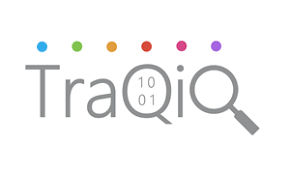The business-consumer relationship is rapidly becoming digital. Using e-commerce platforms and AI-powered solutions, businesses are transforming their ways to meet the needs of their customers. An important part of the financial sector that is rife with innovation is payment. Mobile technologies like smartphones, tablets etc., offer convenient digital solutions for both customer and company to make virtual payments using a mobile wallet.
What is a Mobile Wallet?
The mobile wallet is an application that can be installed on a smartphone and stores all user information regarding debit/credit cards, coupons, or reward cards on the mobile device. This info can then be accessed using a Personal Identification Number (PIN), QR code set by the user or by linking an image of the owner with the wallet.
Consumers can then use this info to make payments at a merchant site by using a technology called Near Field Communication (NFC), which uses radio frequencies to communicate with electronic devices. The mobile wallet transfers the payment info to the merchant Point-of-Service (POS) terminal by waving or holding an NFC-enabled mobile device over the store’s NFC reader.
Is Apple Pay a mobile wallet?
Apple Pay, Samsung Pay, and Android Pay are examples of mobile wallets that can be installed on a smartphone or other hand-held devices.
Should I have more than one mobile wallet?
With the usage of mobile wallets having increased over the past few years, it is highly beneficial to keep more than one mobile wallet as merchant sites may or may not accept a particular payment method. For e.g., Paytm accepting merchants may not agree to transact via Google Pay, and vice-versa. This causes unnecessary inconveniences while making in-store purchases and hence, many users prefer to keep multiple mobile wallets on their hand-held or wearable devices.
TraQiQ offers digital solutions to help large corporations across the world serve their customers better. Its robust mobile wallet enables users to manage and control finances through a convergent platform where they can virtually store and use financial assets. It also offers solutions that payment service providers need to launch and scale their businesses.
























